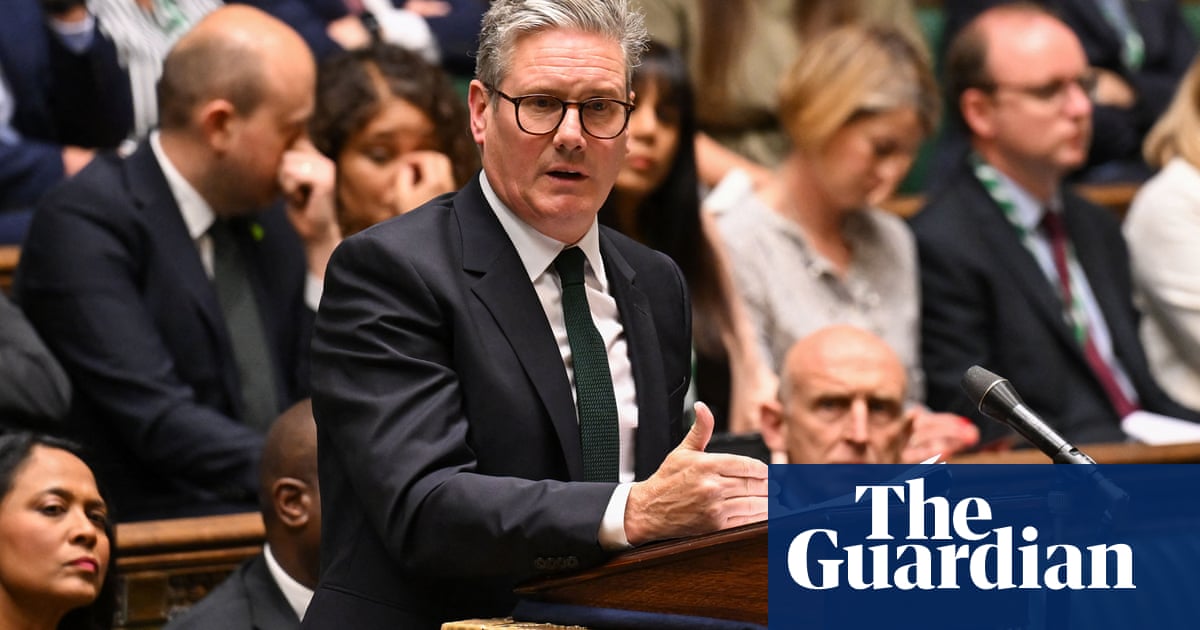As leaders gathered at the Commonwealth heads of government meeting (Chogm) in the Pacific nation of Samoa this week, they hoped that the UK government and King Charles might use the summit as an opportunity to issue an apology for Britain’s colonial past and discuss reparatory justice.
While their concerns were acknowledged, the UK stressed it would not pay reparations, and while Keir Starmer called the slave trade “abhorrent”, the government is yet to make a formal apology. King Charles acknowledged “painful aspects” of Britain’s past but stopped short of saying sorry.
Here are some apologies the British government has made in the past:
Grenfell Tower
In September, months after becoming prime minister, Keir Starmer apologised “on behalf of the British state” to victims of the Grenfell Tower fire and their families, seven years after the disaster.
In June 2017, 72 people, 18 of them children, lost their lives in the fire. A public inquiry found the national and local government responsible for the avoidable catastrophe, as well as regulators and businesses.
“It should never have happened. The country failed to discharge its most fundamental duty, to protect you and your loved ones, the people that we are here to serve, and I am deeply sorry,” Starmer said in parliament.
Windrush citizens
The former prime minister Theresa May issued an apology to Caribbean heads of government for the treatment of Windrush citizens in 2018, after the scandal, first brought to light by the Guardian, in which thousands of people legally resident in Britain, many of whom were born in the Caribbean, were wrongly classified as immigration offenders.
“I take this issue very seriously. The home secretary apologised in the House of Commons yesterday for any anxiety caused. And I want to apologise to you today. Because we are genuinely sorry for any anxiety that has been caused,” May told a meeting with Caribbean leaders, to dispel the impression that her government was “in some sense clamping down on Commonwealth citizens, particularly those from the Caribbean”.
The then home secretary Amber Rudd issued an unprecedented apology in 2018 to Windrush-era citizens for her own department’s “appalling” actions, acknowledging that the Home Office had “lost sight of individuals”.
Bloody Sunday
In 2010, the then prime minister David Cameron issued a formal state apology for the “unjustified and unjustifiable” killing of 14 civil rights marchers by British soldiers in Derry 38 years earlier.
Bloody Sunday, as the events of 30 January 1972 came to be known, was one of the most controversial moments of the Troubles.
“What happened on Bloody Sunday was both unjustified and unjustifiable. It was wrong,” Cameron told the Commons after the long-awaited report from Lord Saville’s inquiry into Bloody Sunday, which took 12 years to compile. It showed soldiers killed 13 marchers outright and lied about their involvement in the killings, and that all of those who died were innocent.
after newsletter promotion
Guildford Four and Maguire Seven
In 2005, the then prime minister Tony Blair apologised to the 11 people wrongfully imprisoned for the IRA bomb attacks in Guildford and Woolwich in 1974, in a notorious miscarriage of justice, which was overturned by the court of appeal in 1989 in the case of the Guildford Four, and in 1991 in the case of the Maguire Seven.
Four people were arrested in 1974 and wrongfully jailed in 1975 for an IRA bomb attack on two pubs in Guildford. The blasts killed five people – four soldiers and a civilian. Two of those arrested were also convicted of involvement in a separate bombing in 1974 at a pub in Woolwich, London, in which two people died. The four prisoners became known as the Guildford Four. The Maguire Seven were convicted in 1976 of possession of explosives in connection with the bombings.
“I am very sorry that they were subject to such an ordeal and injustice,” Blair told members of the Conlon and Maguire families. “That is why I am making this apology today – they deserve to be completely and publicly exonerated.”
5. Hillsborough
In 2012, Cameron said he was “profoundly sorry” for the failures that caused the Hillsborough disaster 23 years earlier.
In 1989, a lethal crush at the FA Cup semi-final between Liverpool and Nottingham Forest, killed 97 people at the Hillsborough football stadium. (Andrew Devine, who died in 2021, was the 97th victim of the disaster.) A jury at an inquest into the disaster later found that a catalogue of failings by police and the ambulance services contributed to their deaths.
“With the weight of the new evidence in the report it’s right for me today as prime minister to make a proper apology to the families of the 96,” said Cameron. “On behalf of the government, and indeed of our country, I am profoundly sorry that this double injustice has been left uncorrected for so long.”












